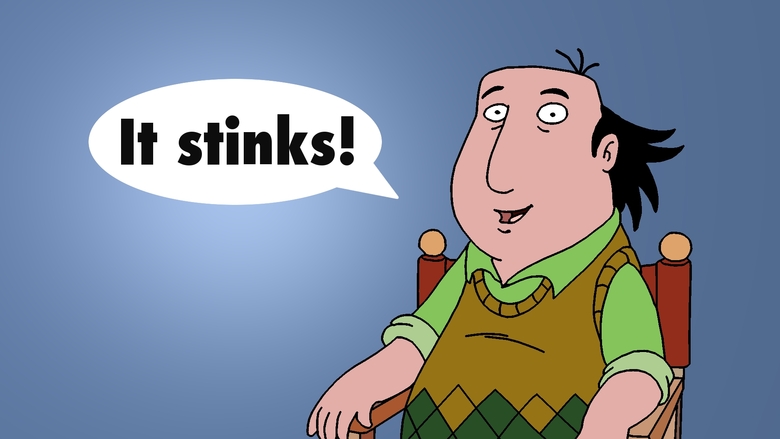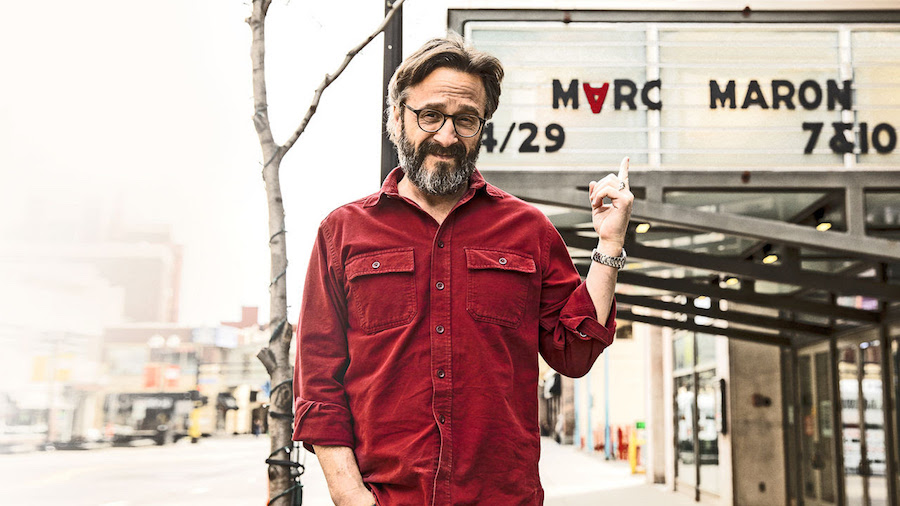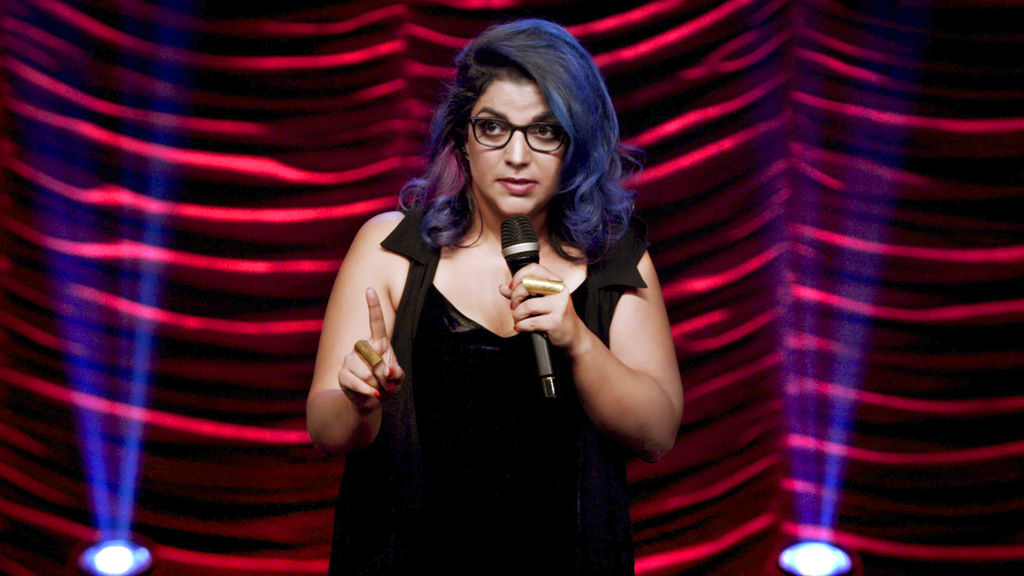This is my 11th consecutive year covering Montreal’s Just For Laughs, but the first in which I’ve experienced serious blowback while still at the festival.
What’s going on here? A few different things, and I’ll try to clear the air on as many of them as I can.
Usually, comedians, comedy fans and the industry all look forward to my JFL coverage, whether they’re in Montreal, too, or reading about it vicariously from afar. Last year, the feedback was raw and overwhelmingly positive when I assessed the problems with how the 2016 Unrepped New Faces were handled. This year, slightly different vibe in the air.
For one thing, there’s too much general hostility toward the media and working journalists. Some of it justified. Much of it not, though, and coming from a very defensive place, particularly within Washington, D.C., and from Trump loyalists. I wouldn’t be surprised if a comedian who hated my review of his/her special shouted FAKE NEWS! at this point.
But since Decider hired me to review every new Netflix comedy special, as well as the more notable releases from HBO, Showtime, Comedy Central and Seeso, I’ve critiqued many stand-up comedians over the past two years. Which meant when I arrived in Montreal this week, there were a few funny folks staying in my hotel and mingling with me in the lounge who might be unhappy with me for a variety of reasons.
Theo Von, whom the Race Wars guys ambushed me with on the phone on live radio to confront my review of his Netflix special, met me in person in Montreal this week and still holds a grudge. I told him during that Race Wars episode that I’d love to interview him to help shed more light on his life and comedy, and my offer still stands. He said that I burned/buried him, but then again, JFL invited him back to Montreal. So did I really?
Michael Che got my cool privileges revoked at The Comedy Cellar because he was upset, not at my positive review, but in my quoting the jokes that were in his YouTube trailer. But I agreed to take them out, since it didn’t change the nature of my review. And I took his suggestion and applied it to future reviews, and it’s helped immensely in sharpening my criticism, so it’s not just a joke-by-joke recap of an act.
But as I wrote when I reviewed this summer’s Netflix collection of half-hour specials, there have been too many new hours released recently during this comedy boom that were only half-good, and could have benefited greatly from subtracting the lesser half-hour of material. On the one hand, it’s a bit ironic that comedians enjoy joking and ranting about how overly sensitive audiences have become in 2017, while also proving themselves just as fragile when anyone finds any fault or room for their improvement. Part of it isn’t the comedians fault, necessarily. The comedy boom has agents and managers encouraging a gold rush, which can lead to comedians putting out material that’s not fully ready for recording and consumption.
But there’s also fault to go around to critics. Particularly the lack thereof. Even during this boom, there remains a severe scarcity of legit comedy critics and journalists. Instead, you’ve got me. Jason Zinoman at The New York Times. Steve Bennett and his Chortle cohorts in the UK. Julie Seabaugh used to write more criticism and at one point gathered a few others on a site, but that’s since vanished. Jesse David Fox for Vulture does some criticism but more known for lists and rankings. Matthew Love does the same for Rolling Stone. Love’s previous employer, Time Out NY, used to cover JFL, but no longer does. So you only have a couple of reliable sources, and then it’s random fans and bloggers who bring their extreme biases to the Internet.
Jen Kirkman made it a point in her new show at this JFL to namecheck Bennett amid the community of comedy critics.
But there’s no Siskel to my Ebert here. No other critic to provide a counterpoint and give fans someone else to identify with. Of course, just as it happens with movie critics, there might be comedy fans who use me or another critic as an opposite barometer as much as they may use me as a guide. Of course, too, everyone else can come to their own conclusion. Comedy is such a subjective art form. Comedians often don’t have indifferent audiences, but rather loyal fans or offended customers.
Today finds more comedy cheerleaders around than critics. Some toot only a few horns over and over again which is fine as long as you understand that’s what you get when you click there. Other sites toot the horns as if everything is awesome! Again, fair enough if that’s clearly communicated as a site’s brand.
Now a word specifically about Montreal New Faces.
In 2007, Harris Wittels chewed me out for limiting my assessment of him to only a sentence. So one year, I tried only writing about the standouts at New Faces. But people at the festival and elsewhere cried out, wondering why I hadn’t mentioned every New Face. Is that what they really want, though?
Sugar Sammy may have introduced New Faces on Wednesday as the next superstars, but the truth is not all of them will be. Some will become full-time writers for TV, film or even write for other comedians and stop performing stand-up. Some will learn in retrospect that this week in Montreal represented the peak of their careers. Is it “TOO SOON” for me to tell them now? Perhaps. Not everyone receives a participation trophy in show business, although just making New Faces is a career highlight for most all stand-ups. They’re unanimously excited to experience Montreal’s Just For Laughs for the first time. And either the industry, their friends or their own psyches make them anxious, too, often feeling there’s no second chance to make a first impression after New Faces. Last year, friends of Casey James Salengo lashed out at me for giving him short shrift in my New Faces roundup. Since then, he has recorded a half hour for Comedy Central and done Jimmy Kimmel Live, so he’s doing just fine.
But I recognize my words matter, and that I have a part to play in all of this. So I’m always willing to receive feedback and criticism. I’m committed to hearing comedians and agents and managers out. Willing to take a second look at what I wrote (and at the audio or video evidence, when applicable) and open enough to change my mind if need be, or admit I could’ve done better myself, or correct the record for posterity.
A critic should be as willing to receive constructive criticism as he or she is willing to dish it out.
Siskel and Ebert and other movie critics have had their haters over the decades, but studios and actors kept making more money and more movies. Hollywood endures, and so do comedians. If they’re funny and ambitious, comedians will take reviews as notes, either wanting to improve their acts or prove me wrong so I’ll have to eat my words someday. I look forward to that. Figuratively, of course.





One thought on “The conundrum of comedy criticism in 2017”
Comments are closed.